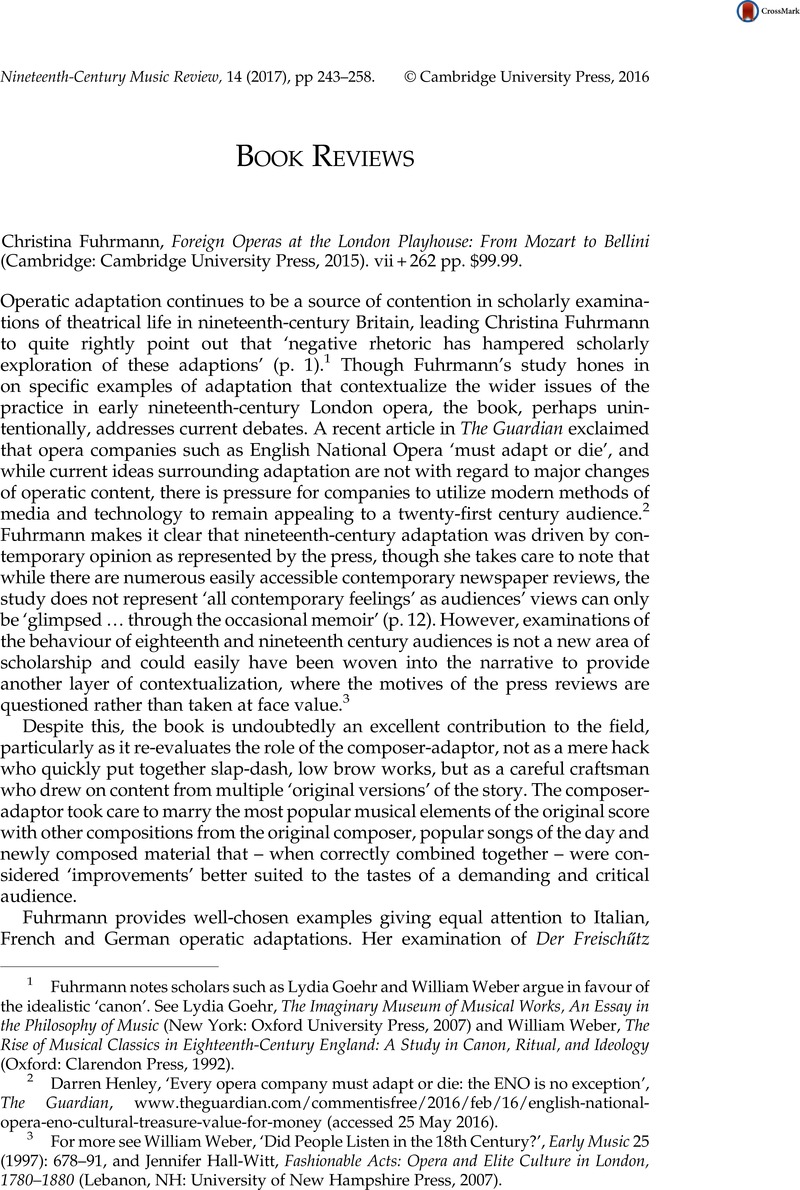No CrossRef data available.
Published online by Cambridge University Press: 05 December 2016

1 Fuhrmann notes scholars such as Lydia Goehr and William Weber argue in favour of the idealistic ‘canon’. See Goehr, Lydia, The Imaginary Museum of Musical Works, An Essay in the Philosophy of Music (New York: Oxford University Press, 2007)Google Scholar and Weber, William, The Rise of Musical Classics in Eighteenth-Century England: A Study in Canon, Ritual, and Ideology (Oxford: Clarendon Press, 1992)Google Scholar.
2 Henley, Darren, ‘Every opera company must adapt or die: the ENO is no exception’, The Guardian, www.theguardian.com/commentisfree/2016/feb/16/english-national-opera-eno-cultural-treasure-value-for-money Google Scholar (accessed 25 May 2016).
3 For more see Weber, William, ‘Did People Listen in the 18th Century?’, Early Music 25 (1997): 678–691 CrossRefGoogle Scholar, and Hall-Witt, Jennifer, Fashionable Acts: Opera and Elite Culture in London, 1780–1880 (Lebanon, NH: University of New Hampshire Press, 2007)Google Scholar.
4 See Fuhrmann, Christina, ‘Continental Opera Englished, English Opera Continentalized: Der Freischütz in London, 1824’, Nineteenth-Century Music Review 1 (2004): 115–142 CrossRefGoogle Scholar.
5 While the premiere of this adaptation was modest in the vocal scoring for the prima donna, Fuhrmann notes when Maria Dickons took on the role in a later production the arias were changed to include the typical virtuosic elements expected of a leading lady (p. 43).
6 Rutherford, Susan and Rachel Cowgill discuss this at length in their recent studies. See Susan Rutherford, The Prima Donna and Opera, 1815–1930, (New York: Cambridge University Press, 2006)Google Scholar, and Cowgill, Rachel and Poriss, Hilary, The Arts of the Prima Donna in the Long Nineteenth Century, (New York: Oxford University Press, 2012)CrossRefGoogle Scholar.